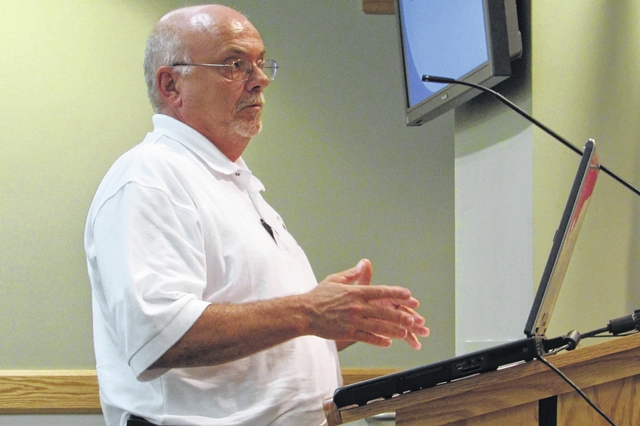
In observance of North Carolina Hurricane Preparedness Week this week and the start of hurricane season just days away, Sampson County emergency officials are urging everyone to make prepare for the worst.
Sampson County Emergency Management has encouraged residents to plan now for hurricane season, as well as other natural disasters and severe storms, by updating emergency plans and supply kits.
“It’s important to act now before storms strike,” Sampson Emergency Management director Ronald Bass said. “Those who take time to discuss their emergency plans and assemble or update those supply kits will have peace of mind and be better prepared to survive a storm and recover from it. Preparation is never wasted time and can very well be the difference between life and death.”
Hurricane season officially begins June 1 and runs through November.
“Sampson County residents will remember the devastation caused by notorious storms of the distant past such as Hurricane Hazel, as well as storms of the recent past such as Hurricane Fran,” Bass said. “These storms are reminders to our residents and visitors that hurricanes and even tropical storms can cause severe winds, flooding and property damage here too.”
While the season officially begins in June, traditionally mid-August to mid-October is the most active time for hurricanes in North Carolina, according to officials.
“Still, it behooves everyone to be prepared,” Bass said. “As many may recall, last year Hurricane Arthur made landfall along our coast in early July.”
To that end, Sampson County Emergency Management urges families, businesses and local governments to assemble emergency supply kits, then make and rehearse plans for where to go and what to do if a hurricane threatens the state.
The kit should contain enough non-perishable food and a gallon of water per person per day to last three to seven days.
Other essential items include:
• Copies of insurance papers and identification sealed in a watertight plastic bag
• First-aid kit
• Weather radio and batteries
• Supply of prescription medicines
• Sleeping bag or blankets
• Changes of clothes
• Hygiene items such as toothbrush, toothpaste, soap and deodorant
• Cash or checkbook
• Pet supplies including food, water, leashes, bedding, muzzle and vaccination records
Staying informed during a storm is vital, so keeping a battery-powered radio for weather and evacuation information and knowing those evacuation routes in the community is key so, if it comes to that point, warnings of state and local officials can be heeded and routes will be known for a swift exit.
Residents can evacuate their homes with their small, domestic pets to specially-designated pet-friendly shelters. Pet shelters will be equipped with pet crates, but people should bring feeding dishes, food and water, immunization papers and other pet supplies.
Additionally, residents should review and update their homeowners’ or renters’ insurance policies to make sure they include coverage for accidental damage, natural disasters and, if necessary, flood insurance. Bass said some measures are in place to mitigate the long-term effects of that damage.
“In preparation for natural disasters such as hurricanes, Sampson County has adopted a FEMA-regulated Hazard Mitigation Plan of which is designed to reduce or eliminate long-term risk to people and property from natural hazards,” Bass remarked. “By doing so, the county and its residents are better prepared today than we were 15 or 25 years ago, but we’re still not immune to the many ways a storm can impact a community.”
And while people in Sampson and across the eastern part of the state have endured plenty of hurricanes, those hurricane veterans may mistakenly focus on the storm category and dismiss the threat of lower-level storms.
“Listen and heed instruction from your public safety officials,” stated Bass. “It could save your property — more importantly, your life.”
Being prepared is a critical first step.
“It’s critical that people prepare for emergencies before a storm hits,” the Emergency Management director said. “During those first few days, you may be on your own until responders can reach you or until essential utilities can be restored.”
More information on hurricanes and overall emergency preparedness can be found on the ReadyNC mobile app and online at www.ReadyNC.org.

